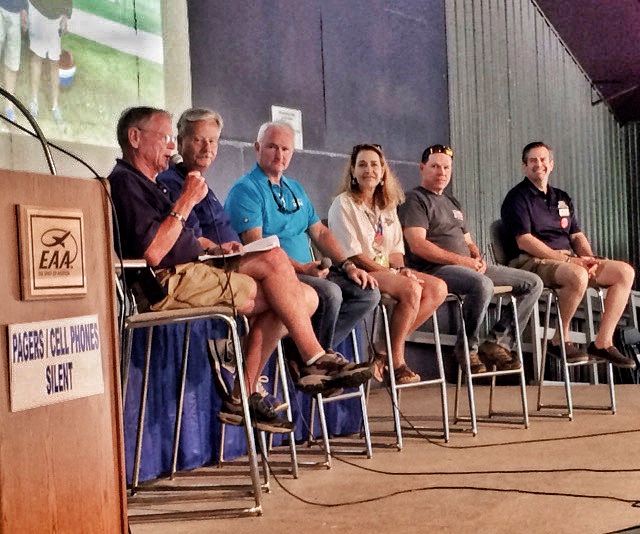Pilot's Bill of Rights 2 includes more than medical reform

“Ninety percent of the pilots of America think that since we passed third class medical reform…that that’s all there is in the Pilot’s Bill of Rights 2,” Inhofe said July 30 at EAA AirVenture. “That’s not all there is.”
The third class medical reform language in the bill was inserted into an FAA reauthorization bill that President Barack Obama signed into law on July 15. That language understandably received a lot of attention, Inhofe noted during a panel discussion with AOPA President Mark Baker and EAA President Jack Pelton. But the bill also includes a wide range of protections for pilots, and Inhofe said it’s vital to get those protections enacted as well.
Among other measures, the bill would clarify that pilots who are facing an FAA enforcement or certificate action can choose to appeal directly either to a U.S. district court or to the National Transportation Safety Board for a trial or full hearing.
“This is something that goes a long way in making sure the playing field is clear,” said Alan Farkas, an aviation attorney with SmithAmundsen in Chicago. “The Pilot’s Bill of Rights 2 leaves no room for interpretation. If the FAA comes out and says for emergency reasons [it] needs to revoke your certificate, they cannot do that without providing the full file of information that they would be using against you in enforcement proceedings.”
The bill would prohibit the FAA from requiring pilots to submit to re-examination of their pilot certificate unless there is clear evidence of unsafe behavior on the part of the pilot or the pilot has obtained his or her certificate through fraudulent means. Kathy Yodice, an aviation attorney for AOPA’s Pilot Protection Services and Legal Services Plan, said the FAA currently has very broad authority to re-examine an airman at any time, and the policy is to exercise that authority when there is a reason to question the airman’s qualifications.
“That’s fine, we can all be subject to a test, but there are some abuses coming from the FAA when people have been examined by a [designated pilot examiner] and years later it’s determined that the designee acted inappropriately,” Yodice said. “The FAA re-examines all the airmen that designee was involved with.” Language in the Pilot’s Bill of Rights 2 makes it a fairer process, Yodice said. “The FAA should not punish you for something you didn’t do, nor have you demonstrated any problem in the system. It’s the FAA’s problem for not monitoring the designee.”
Inhofe said he introduced the Pilot’s Bill of Rights 2 after he was involved in a 2010 incident in which the FAA maintained that he landed a Cessna 340A on a closed runway at an airport in Texas. Inhofe completed remedial training in lieu of enforcement action.
“For that four months, I thought some unelected bureaucrat could take away my ability to fly an airplane, and it could happen to any one of you,” Inhofe told the AirVenture audience. The senator flew and camped at AirVenture for the thirty-second consecutive year.
Baker said Inhofe has a strategy to move the Pilot’s Bill of Rights 2 forward, and he has included it in the Senate version of the proposed National Defense Authorization Act. “So we have a vehicle to move that bill forward and we intend to do that,” Baker said.
The legal reforms included in the Pilot’s Bill of Rights 2 are “a little esoteric,” said Doug McNair, EAA vice president of government relations, “but the point of all that work is to give you more due process in any enforcement action you might find yourself in in the future.”



